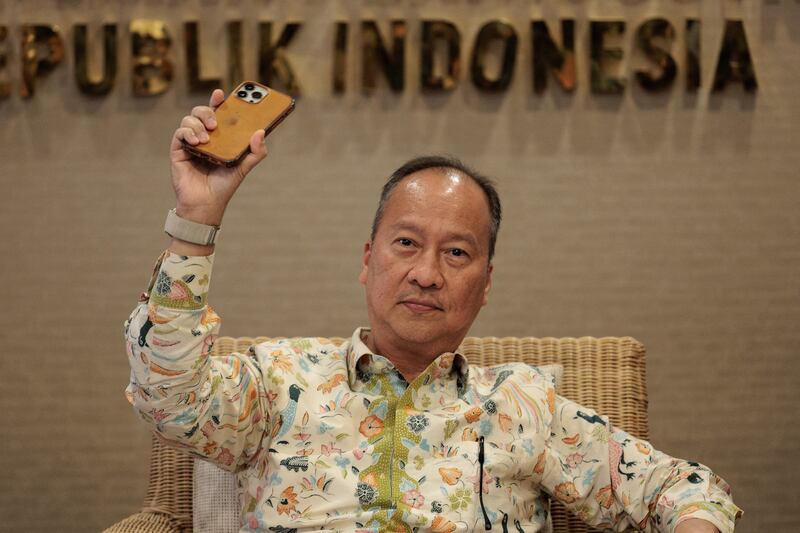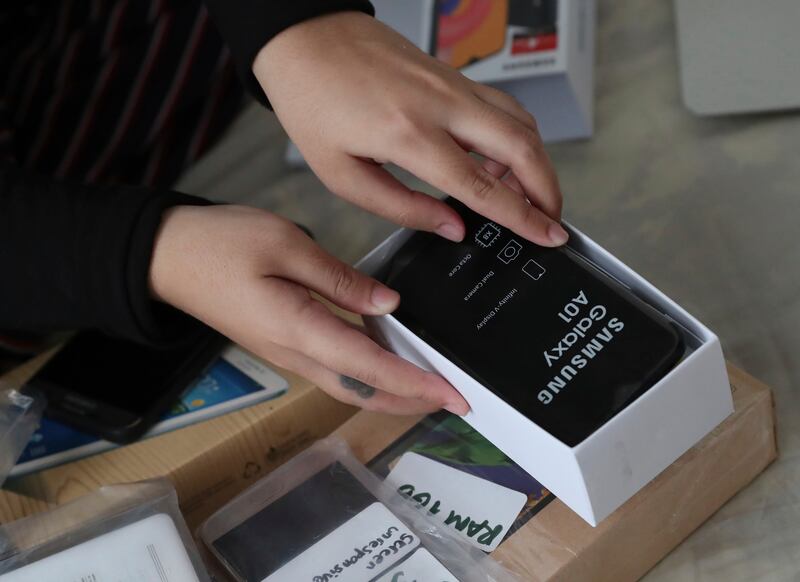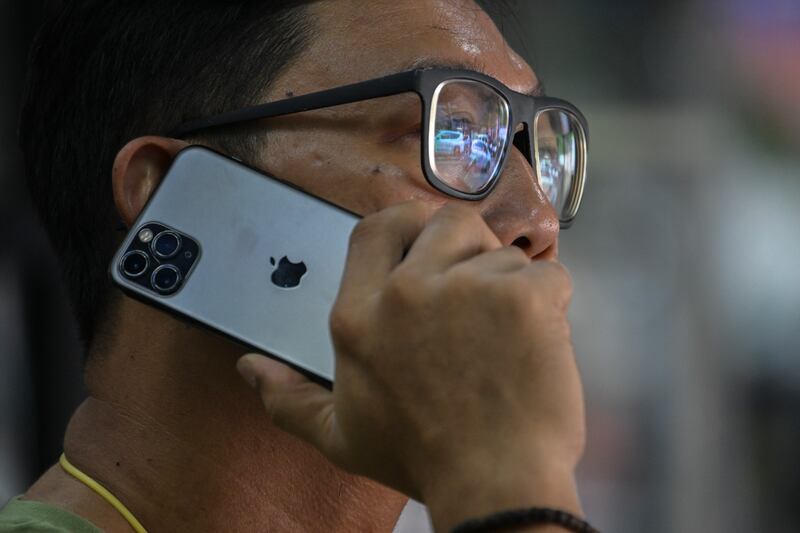Apple’s U.S. $1 billion proposal to set up a local factory for AirTags – tracking devices linked to an app – has failed to sway the Indonesian government, leaving the iPhone 16 banned in Southeast Asia’s largest economy.
Home to more than 270 million people and a burgeoning middle class, Indonesia is one of the biggest smartphone markets in the region.
Yet the country's new government deemed Apple's offer to build the factory, which would supply 65% of the global market for the Bluetooth trackers, as insufficient. Unlike its competitors in the Indonesian smartphone market, the U.S. tech giant does not manufacture iPhones or iPhone parts in Indonesia.
A 2017 regulation (TKDN) mandates that 40% of smartphones sold in the country must be made with locally sourced components or produced domestically. The policy aims to reduce reliance on imports, develop domestic manufacturing and foster technology transfer.
RELATED STORIES
[ After doubling down on iPhone ban, Indonesia says Apple offers $1BOpens in new window ]
[ Huawei’s dominance in Indonesia raises digital colonization concernsOpens in new window ]
[ Indonesia courts US tech titans as it pursues digital transformationOpens in new window ]
Apple's proposed factory doesn't meet these criteria because AirTags are accessories, said Gumiwang Kartasasmita, Indonesia's minister of industry.
“I want to emphasize once again, the AirTags to be produced by ICT [information and communication technology] are not direct components of iPhones,” Gumiwang told reporters this week. “Therefore, there is no basis for the Ministry of Industry to issue TKDN certification for Apple to obtain distribution permits in Indonesia.”

On its website for AirTags, Apple says, “Attach one to your keys, slip another in your backpack. And just like that, they’re on your radar in the Find My app.”
Apple's approach contrasts with competitors including Samsung, Oppo and Xiaomi, which have established local manufacturing facilities to comply with Indonesian regulations. Honor, a spinoff of Chinese telecommunications giant Huawei, returned to Indonesia this week after a hiatus.
‘It’s Apple that needs Indonesia’
Earlier this week, Apple executives met with Indonesian officials to discuss the $1 billion plan for a factory in Batam, an island near Singapore. The facility is slated to begin operations in 2026.
Critics argue that Apple’s focus on AirTags, rather than parts for smartphones, misses the mark.
Aryo Meidianto Aji, a senior consultant and smartphone market analyst at Reasense Research, said the move was primarily a tactic to secure regulatory leniency.
“This seems like a strategy to sidestep real requirements,” Aryo told BenarNews. “What’s being asked for is local components in smartphones sold domestically – essentially, Apple producing iPhones in Indonesia.”
Herry Setiadi Wibowo, another tech analyst, agreed.
“If they’re unwilling to comply, then they should exit the Indonesian market. Indonesia doesn’t need Apple – it’s Apple that needs Indonesia,” Herry said.
“Apple should be treated like any other manufacturer and required to fulfill the manufacturing-based TKDN. The option to rely on the investment scheme should be permanently closed.”

Indonesia is a major market for smartphones, but it’s also highly competitive.
Chinese brands including Oppo, Vivo and Xiaomi dominate, offering options tailored to local needs. Even Samsung, a global rival, has a strong presence thanks to its local manufacturing operations.
Meanwhile, Indonesia’s neighbor Vietnam has become a hub for global supply chains. Apple has already built production networks there, including facilities for iPhones and other high-value products.
Structural barriers to investment
While Apple faces challenges in maintaining its foothold, critics said Indonesia’s strict policies might be costing it foreign investment.
The U.S. Chamber of Commerce, in its 2024 investment report on Indonesia, noted that mandatory local content rules and joint venture requirements had deterred significant investments.
“If we want to improve the investment climate in Indonesia, the TKDN requirement is something that really needs to be reduced,” Lydia Ruddy, managing director of the American Chamber of Commerce in Indonesia, told local media in November 2024. “It is very challenging for any company, especially most companies that are part of the global supply chain.”

Complex permitting processes, inconsistent regulations and less-developed infrastructure often make it less attractive compared to neighboring countries such as Vietnam and Malaysia, said Josua Pardede, chief economist at Permata Bank.
“Investors frequently find Indonesia’s costs of doing business higher and its regulatory framework more cumbersome,” Josua told BenarNews. “While Indonesia has a large population, its purchasing power for premium products like iPhones remains relatively limited.”
Vietnam’s proximity to China also gives it a competitive edge.
“Vietnam not only benefits from better infrastructure but also enjoys closer access to major markets like China,” Josua said.
Mixed sentiments
For Prajna Paramita, 34, a self-proclaimed iPhone devotee, Apple’s latest smartphone remains worth the wait – despite the delays.
“It’s frustrating. Why is this becoming such a big issue now?” she told BenarNews, expressing her impatience waiting for iPhone 16’s release in Indonesia. Apple released the four-phone lineup internationally in September.
Prajna, who upgrades to the latest model annually, said she hoped the ongoing impasse would be resolved soon.
Trilasto Nugroho, 32, an Android user, said alternatives in the market were adequately meeting consumer needs.
“I’m indifferent to the iPhone’s absence,” he told BenarNews. “It’s out of my budget, and my Android phone fulfills all my requirements.”
